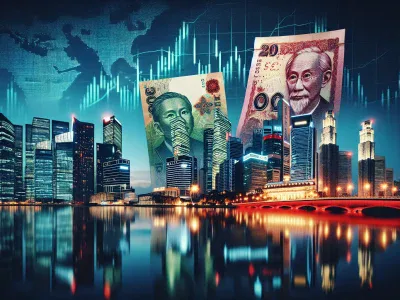GBP Versus Euro: Understanding the Exchange Rates and Economic Dynamics
Currency exchange rates play a crucial role in global economies, influencing trade, investment, and tourism. Among the most closely observed pairs is the exchange rate between the British Pound (GBP) and the Euro (EUR). This pair not only reflects the economic interplay between the United Kingdom and the Eurozone but also holds significant implications for global financial markets.
Overview of the GBP and Euro
Historical Background of Both Currencies
The British Pound, often referred to as sterling, is one of the oldest currencies still in use today, symbolizing a rich history of commerce and financial innovation. The Euro, in contrast, was introduced in 1999 to unify Europe’s economy under a single currency, aiming to foster stability and economic growth among member states.
Key Role in the Global Economy
Both the GBP and Euro hold prominent positions in global trade and finance. The GBP is a popular reserve currency, while the Euro is widely used in international transactions and is the second most traded currency in the world.
Exchange Rate Trends and Influences
Factors Impacting GBP/Euro Exchange Rates
Exchange rates between GBP and Euro are influenced by numerous factors, including interest rates, economic performance indicators, political developments, and market speculation. For example, announcements by the Bank of England or the European Central Bank can cause notable fluctuations.
Notable Historical Exchange Rate Fluctuations
Historical data reveals periods of volatility in the GBP/Euro exchange rate, such as during the Brexit referendum, wherein uncertainty about the UK’s EU membership led to sharp currency movements. These events underscore the interconnectedness of economic and political events with currency valuation.
Implications of Exchange Rates for Trade
Impact on Imports and Exports
For businesses, exchange rate changes directly impact the cost of importing goods and the competitiveness of exports. A stronger GBP versus Euro can make imports cheaper but exports less price-competitive in the Eurozone.
Effect on Tourism and Travel
For travelers, the exchange rate affects the relative cost of visiting countries. A favorable GBP/Euro rate can make European vacations more affordable for UK tourists and vice versa.
Strategies for Individuals and Businesses
Best Practices for Currency Exchange
When exchanging currency, consider timing and intermediary fees. Opt for reputable exchange providers and monitor market trends to secure favorable rates.
Mitigating Exchange Rate Risks
Businesses often use financial instruments like forward contracts and options to hedge against exchange rate risks, ensuring stability in international transactions.
by Ellie B, Site owner & Publisher
- Difference Between Passport Book and Passport Card - January 30, 2026
- Which is Older: Zoroastrianism or Judaism? - January 30, 2026
- Understanding the Difference Between Personal Items and Carry-Ons - January 30, 2026







